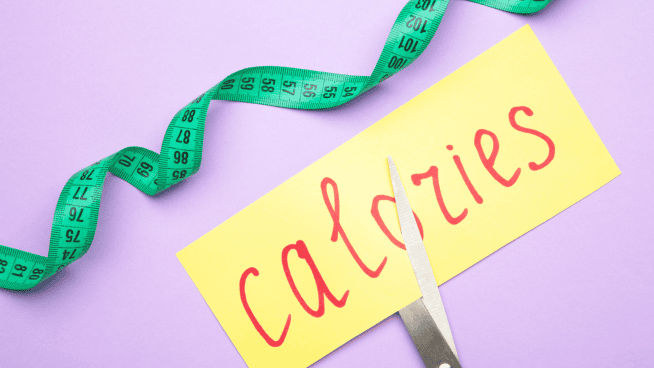3 Common Diet Myths – And How to Beat Them
I’ve been training athletes for a long time. Along the way, I’ve heard plenty of diet and exercise advice, some of it good, lots of it bad. And perhaps no field is more full of nonsense than nutrition.
After all, how many times have you heard about a “magic” eating plan that will cause you to drop extra pounds, get that shredded midsection you’ve always wanted, and pack on pure muscle? Probably too many to count. And too often, people who try these methods wind up failing. Why? Because the plan they followed was based on a bad idea to begin with.
I could probably write a book about all of the diet myths I’ve heard, but here are the three worst—along with real solutions you should follow instead.
Myth: You should eat a specific (and small) number of calories each day.
Although the numbers may change (I’ve heard people say that women should eat as few as 1,200 calories a day, and 1,500 calories for men), the gist of this advice is the same: you need to restrict yourself to X or Y calories—no more, no matter what. Always be skeptical of plans that prescribe a specific calorie number. There is no one-size-fits-all approach when it comes to nutrition. How is it that a 5’5″ 150-pound male should eat the same amount of calories as a 6’2″ 200-pound male? It simply makes no sense.
Reality: Your eating habits should be based on your hunger levels.
While it can be helpful to have a ballpark estimate of how many calories your body needs in a day (here’s a quick way to calculate that number), proper eating is simple: if you are hungry, eat. Just make sure the foods you eat are healthy, like a meal consisting of a lean protein and veggies, or an apple with almond butter as a snack. Try and quash your cravings by eating smaller meals more frequently throughout the day. Find the right combination that works for you; just try to make sure the majority of the calories you take in come from whole, non-processed foods.
Myth: You should never eat__________(insert food group here).
Diets that restrict or eliminate a major food group—most often, fat or carbs—are not just ineffective in the long term, they’re downright dangerous. Carbs fuel your brain. Fats provide energy for your body and deliver essential fatty acids that are important for blood clotting and brain development. So the idea that you can subsist on a diet that removes one of these key nutrients is totally unrealistic.
Reality: You should find balance through natural foods.
The negatives of eliminating a food group outweigh the benefits by a long shot. So rather than sign up for a diet your body literally cannot handle, try and get a balance of foods and nutrients through your diet. Eating fat will not make you fat—unless you’re taking in several hundred or more calories a day above what you should. One of the easiest ways to overeat is to opt for processed foods filled with calorie-dense ingredients like high fructose corn syrup and other chemicals. Your digestive system often won’t register how much it’s taking in.
Myth: You can eat as much protein as you want.
Protein is an amazing macronutrient. It is the building block for muscle, bone, skin, nerves, enzymes, blood, brain and even hair. It’s also the favorite nutrient of many bodybuilders, lifters, and even trainers, who recommend that people take in megadoses of protein to build muscle. The only problem? Our bodies have a limit to how much protein they can metabolize per meal. The excess consumption of protein will either be used for energy or stored as fat. (Find out how much protein you need.)
Reality: You should eat smaller amounts of protein throughout the day.
For athletes who exercise less than 90 minutes each day, extra protein means extra calories, which can mean an extra layer of chub around the waistline. (Long distance runners may be able to process megadoses of protein through their long runs; however, protein is harder to digest than carbs, so it might cause some stomach distress along the way.) Try to limit your consumption of protein to less than 30 grams per serving, and space your protein meals two hours apart.
RECOMMENDED FOR YOU
3 Common Diet Myths – And How to Beat Them
I’ve been training athletes for a long time. Along the way, I’ve heard plenty of diet and exercise advice, some of it good, lots of it bad. And perhaps no field is more full of nonsense than nutrition.
After all, how many times have you heard about a “magic” eating plan that will cause you to drop extra pounds, get that shredded midsection you’ve always wanted, and pack on pure muscle? Probably too many to count. And too often, people who try these methods wind up failing. Why? Because the plan they followed was based on a bad idea to begin with.
I could probably write a book about all of the diet myths I’ve heard, but here are the three worst—along with real solutions you should follow instead.
Myth: You should eat a specific (and small) number of calories each day.
Although the numbers may change (I’ve heard people say that women should eat as few as 1,200 calories a day, and 1,500 calories for men), the gist of this advice is the same: you need to restrict yourself to X or Y calories—no more, no matter what. Always be skeptical of plans that prescribe a specific calorie number. There is no one-size-fits-all approach when it comes to nutrition. How is it that a 5’5″ 150-pound male should eat the same amount of calories as a 6’2″ 200-pound male? It simply makes no sense.
Reality: Your eating habits should be based on your hunger levels.
While it can be helpful to have a ballpark estimate of how many calories your body needs in a day (here’s a quick way to calculate that number), proper eating is simple: if you are hungry, eat. Just make sure the foods you eat are healthy, like a meal consisting of a lean protein and veggies, or an apple with almond butter as a snack. Try and quash your cravings by eating smaller meals more frequently throughout the day. Find the right combination that works for you; just try to make sure the majority of the calories you take in come from whole, non-processed foods.
Myth: You should never eat__________(insert food group here).
Diets that restrict or eliminate a major food group—most often, fat or carbs—are not just ineffective in the long term, they’re downright dangerous. Carbs fuel your brain. Fats provide energy for your body and deliver essential fatty acids that are important for blood clotting and brain development. So the idea that you can subsist on a diet that removes one of these key nutrients is totally unrealistic.
Reality: You should find balance through natural foods.
The negatives of eliminating a food group outweigh the benefits by a long shot. So rather than sign up for a diet your body literally cannot handle, try and get a balance of foods and nutrients through your diet. Eating fat will not make you fat—unless you’re taking in several hundred or more calories a day above what you should. One of the easiest ways to overeat is to opt for processed foods filled with calorie-dense ingredients like high fructose corn syrup and other chemicals. Your digestive system often won’t register how much it’s taking in.
Myth: You can eat as much protein as you want.
Protein is an amazing macronutrient. It is the building block for muscle, bone, skin, nerves, enzymes, blood, brain and even hair. It’s also the favorite nutrient of many bodybuilders, lifters, and even trainers, who recommend that people take in megadoses of protein to build muscle. The only problem? Our bodies have a limit to how much protein they can metabolize per meal. The excess consumption of protein will either be used for energy or stored as fat. (Find out how much protein you need.)
Reality: You should eat smaller amounts of protein throughout the day.
For athletes who exercise less than 90 minutes each day, extra protein means extra calories, which can mean an extra layer of chub around the waistline. (Long distance runners may be able to process megadoses of protein through their long runs; however, protein is harder to digest than carbs, so it might cause some stomach distress along the way.) Try to limit your consumption of protein to less than 30 grams per serving, and space your protein meals two hours apart.











